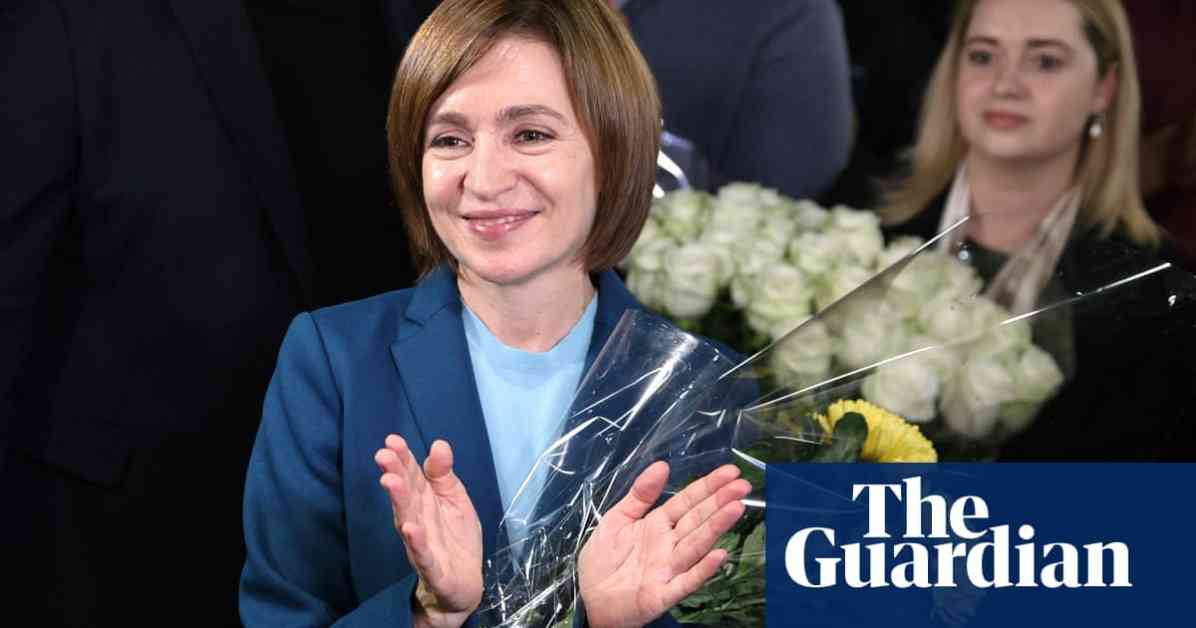Maia Sandu has been reelected as the President of Moldova, securing a second term in office in defiance of the Kremlin. The preliminary results of the Moldovan presidential election show that Sandu, a pro-western leader, has won, signaling a significant victory for the country’s aspirations to join the European Union and a clear rejection of Moscow’s influence.
The runoff election, which took place on Sunday, was closely watched as it would determine whether Moldova’s future alignment would be with Europe or Russia. Sandu, who has been vocal about steering the nation away from Moscow’s grip, faced Alexandr Stoianoglo, a newcomer from the Socialist party known for his Kremlin-friendly stance, in the final round of voting.
With 97% of the votes counted, Sandu was leading by 8%, a margin that made her victory almost certain. The Moldovan diaspora, which makes up about 20% of the electorate, played a significant role in supporting Sandu, as indicated by early results.
Sandu’s reelection is a significant win for her and her pro-EU agenda. In her victory speech, she emphasized the importance of unity, democracy, and a prosperous future for Moldova. Sandu has pledged to be a president for all citizens, regardless of their political affiliations.
The European Union has welcomed the election outcome, offering Moldova a multiyear financial package to support its path to EU accession, which officially began in June. Sandu has set an ambitious goal of leading Moldova into the EU by 2030, promising to work tirelessly towards that objective.
Under Sandu’s leadership, Moldova has accelerated its efforts to distance itself from Russian influence, especially in the context of the ongoing conflict in neighboring Ukraine. The allegations of Russian interference in the Moldovan elections have been a cause for concern, with Sandu’s team working to prevent any external meddling in the democratic process.
Despite the challenges posed by the referendum on EU integration and accusations of vote-buying orchestrated by Russian-backed figures, Sandu’s victory underscores the country’s determination to pursue a pro-European path. The election results have implications not only for Moldova but also for neighboring countries like Ukraine, which have a vested interest in seeing a pro-Western leader at the helm in Chișinău.
Overall, Maia Sandu’s reelection as Moldova’s President marks a significant turning point in the country’s geopolitical trajectory, reaffirming its commitment to European integration and signaling a clear message to Moscow that Moldova’s future lies in closer alignment with the EU.












